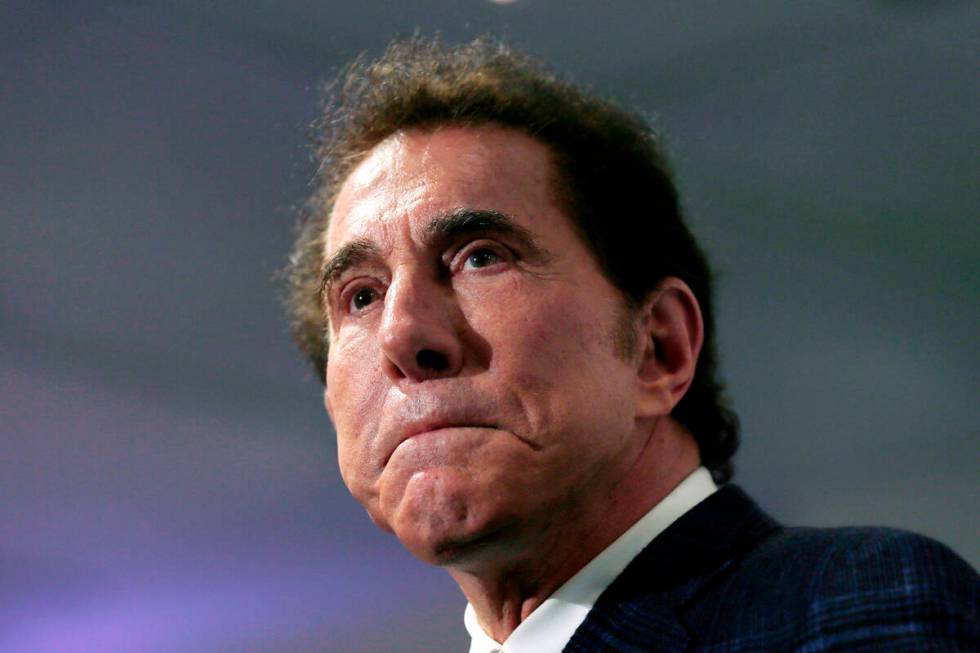Appeals court lets Steve Wynn sexual harassment suit move forward

The dismissed sexual harassment lawsuit brought by nine women against Wynn Resorts Ltd. and its former CEO Steve Wynn will move forward following a Tuesday decision from the U.S. Court of Appeals for the Ninth Circuit.
The appellate court reversed a portion of a ruling by U.S. District Judge James Mahan, who in July 2020 said the women’s pleadings were too vague.
The appellate ruling, argued Oct. 4, said the District Court action was in part affirmed but in part reversed and as a result was remanded back to District Court.
A spokesman for Wynn Resorts had no comment Tuesday on the reversed decision. Steve Wynn could not be reached for comment, and a representative for him said he doesn’t want to be contacted by reporters because he is a private citizen.
The original case was filed in March 2019, a year after Steve Wynn left Wynn Resorts following sexual harassment allegations. Wynn has denied harassing anyone but left the company in February 2018 after the allegations were made public in a January 2018 Wall Street Journal story.
The women chose to be referred to as Judy Does in the lawsuit and argued that the use of their real names could lead to retaliatory defamation suits by Steve Wynn, being ostracized at work or having their lives upended if sensitive details of the case were made public.
In earlier filings, the women identified themselves as employees working as manicurists or makeup artists at Wynn Las Vegas.
They alleged “each suffered similar but individualized acts of sexual harassment and personal degradation by Steve Wynn … at different times, with different durations and under different (and unique) circumstances,” during the course of their employment.
The filing also alleged Wynn Resorts “knew of Steve Wynn’s propensity of misconduct towards female employees, failed to investigate and covered up any reported misconduct.”
Wynn Resorts, with new board members including three women, has since established new anti-harassment policies for the company.
Mahan’s District Court ruling said the women failed to sufficiently defend their decision to use pseudonyms and improperly used collective pleading instead of pleading individual facts — a requirement in sexual harassment claims.
However, the appellate court, in its ruling, said the Judy Does “repeatedly expressed a willingness to provide more information, so long as their privacy could be assured. While the Judy Does had no automatic right to file an amended complaint, the District Court still should have granted leave to amend when dismissing claims that could be cured with additional facts.”
Attorneys in the case are expected to respond within two weeks, and the appellate court ruled each party would bear its own court expenses.
Contact Richard N. Velotta at rvelotta@reviewjournal.com or 702-477-3893. Follow @RickVelotta on Twitter.